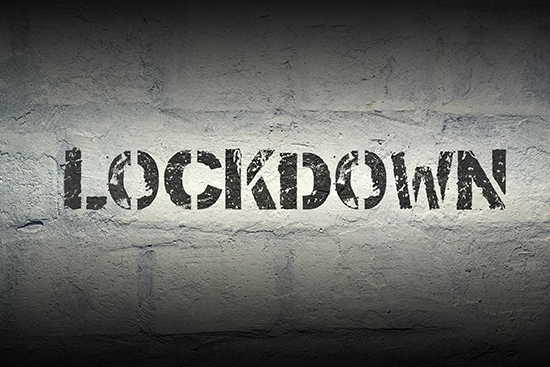With the introduction of the second lockdown in December 2020, several Dutch industries are facing the looming spectre of bankruptcy. Two industries have been particularly hard hit by the COVID-19 regulations: cultural institutions and retail, leaving museum directors and store owners struggling to develop creative ways to stay afloat.
Throughout the Netherlands, museums have struggled to continue operating under the rules implemented by the Dutch cabinet to combat the spread of the COVID-19 virus. Repeated closures have forced several museums to delay planned exhibitions. The Groninger Museum’s long-awaited exhibition, The Rolling Stones – Unzipped, was postponed due to the first lockdown. And the Kunstmuseum Den Haag delayed the opening of an exhibition dedicated to Christian Dior’s work due to the impossibility of recouping the expenses, given the limited numbers of visitors permitted under the COVID-19 restrictions – by now, museums are closed completely, and the online experience cannot compare to viewing works of art in real life.
These delays created logistical logjams requiring museum directors to renegotiate contracts and work within scheduling limits imposed by the museum world’s international nature. The Stedelijk Museum Amsterdam’s June Paik exhibition was scheduled to open during the first lockdown. The museum managed to extend the show, but only after renegotiating contracts with equipment providers and insurers. Kunstmuseum Den Haag’s exhibitions of works by Anders Zorn and Paula Modersohn-Beker were scheduled to run until the end of January. The museum had attempted to extend this period, since the second lockdown will shorten the availability of the works by over a month. Unfortunately, museums in Germany and Sweden had already entered into contracts to display the work, making extension impossible.
Responding to the COVID-19 crisis has put many museums in a financial catch-22: cancelling and delaying exhibitions decreases the attractiveness of a museum visit, but at the same time the number of visits to cultural institutions has decreased by more than 50 percent. “We cannot reduce spending on the exhibition program by too much. Now that the Stedelijk is mostly dependent on the local public, we have to ensure that visitors regularly see new things,” explained Rein Wolfs, director of the Stedelijk Museum Amsterdam, to De Volkskrant. If the second lockdown ends as scheduled on 9 February (which seems unlikely), museums will have been closed for more than 150 days since COVID-19 first emerged as a public health threat last spring.
Store owners throughout the Netherlands are also struggling under the financial impact of the second lockdown, leading to frustrations. Stores selling non-essential products, such as clothing and electronics, have been forced to shut their doors from 15 December 2020, a situation much different from the spring, when these businesses remained open under restrictions. “Entrepreneurs are angry, frustrated and desperate. That is truly different than during the first wave,” says Udo Delfgou, director of INretail, the organization representing retail store owners.
The timing of the second lockdown, in mid-December, increased the impact of the second lockdown on the financial prospects of stores selling non-essential products. Stores were unable to open their doors during the most profitable season of the year, missing out on the Christmas shopping income. Some shops, such as perfume stores, make 50% of their income in the last two weeks of the year, and thus lost a great percentage of their earnings. Furthermore, shops could not sell already-purchased seasonal products like winter coats, warm jumpers and holiday decorations. Retailers are also struggling due to the virtual impossibility of cancelling previously-placed orders with their suppliers, even though they cannot actually sell these products, at least not in physical stores. And online shopping does not make up for the loss of sales from physical stores. “This lockdown costs me a million every day. Every day I get containers in with things from the Far East that I can not get rid of,” said Michael Witteveen, owner of Blokker, in an interview FD newspaper.
Many retailers are staying afloat thanks to government support package created for the COVID-19 crisis, including subsidies for wages and fixed costs. In addition, many struggling store owners took advantage of the option to delay the payment of taxes, rents and interest on loans. However, industry leaders fear that a wave of bankruptcies will follow once lenders start requesting repayment. Particularly physical stores will suffer, since they have been steadily losing ground to online commerce.
Written by Lorre Luther
